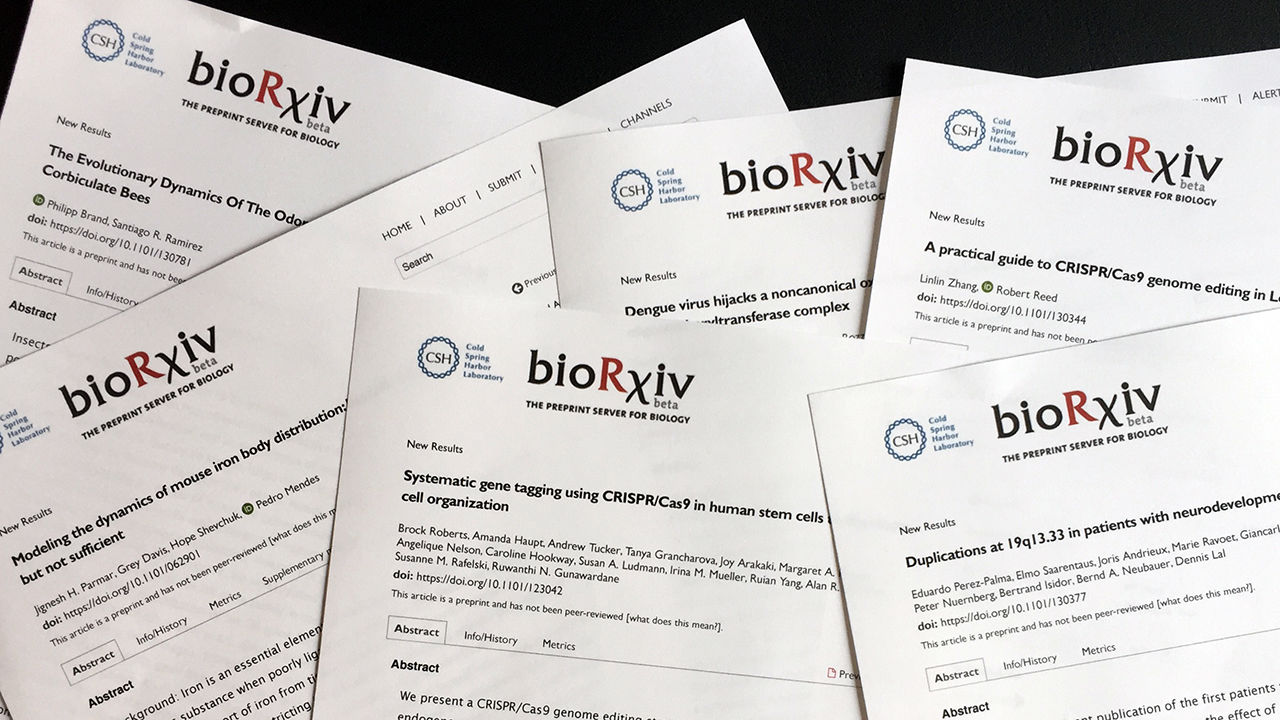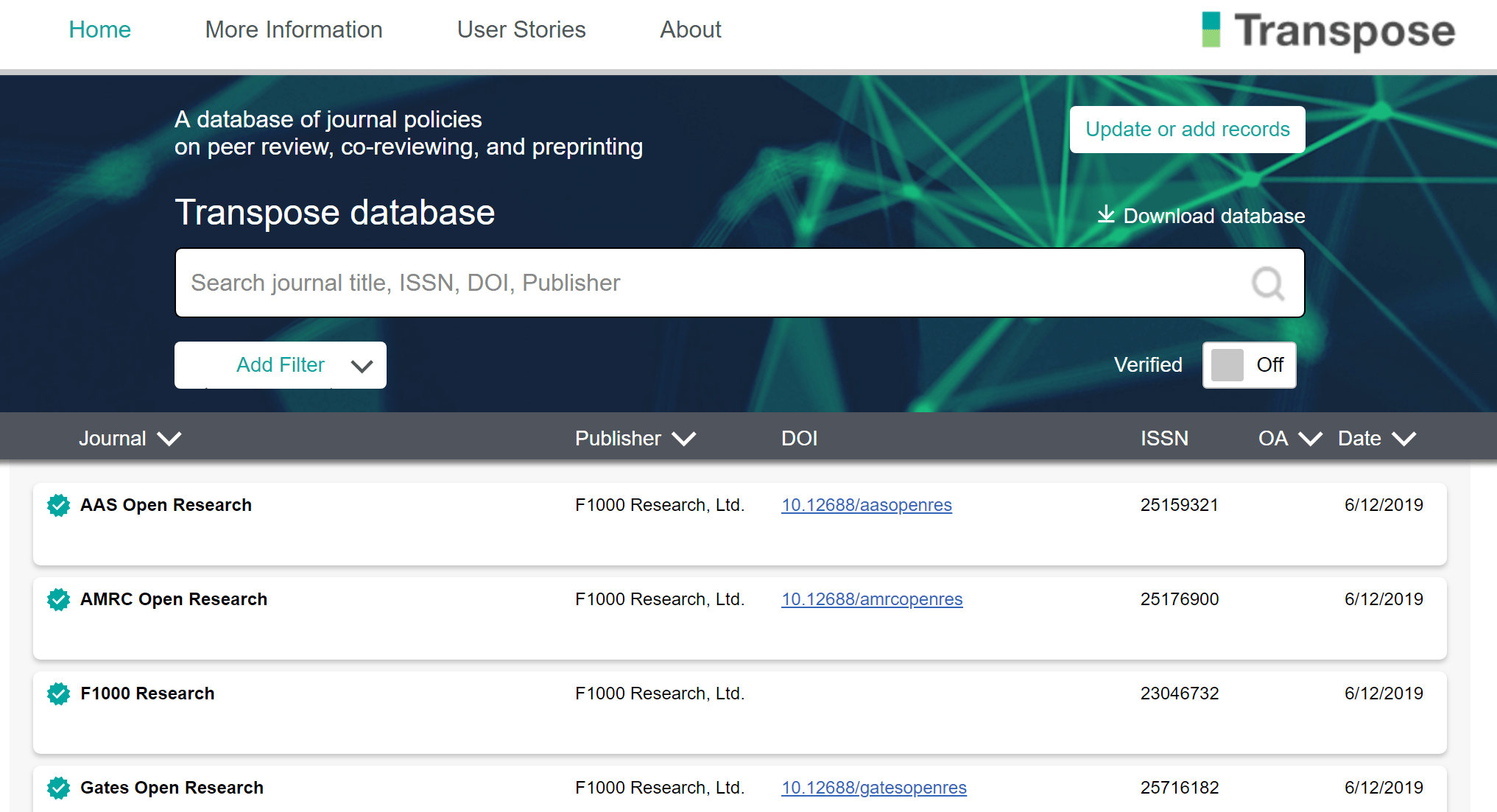Popular Preprint Servers Face Closure Because of Money Troubles
Repositories like INA-Rxiv and IndiaRxiv boost regional science, but finding cash to run them is proving difficult.

Send us a link
Repositories like INA-Rxiv and IndiaRxiv boost regional science, but finding cash to run them is proving difficult.

Preprints, or versions of manuscripts posted online by authors ahead of peer review, are seeing a strong increase in adoption and recognition among many communities in the biomedical sciences.
This observational study can help researchers and publishers make informed decisions about how to incorporate preprints into their work.
We just integrated Plaudit across OSF preprint servers, now allowing researchers to openly endorse papers they find valuable.
We're increasing peer review transparency by making it easier for public comments on preprints to be considered in the review process at PLOS journals.

Study explores the place of preprints in the research lifecycle from the points of view of researchers, research performing organisations, research funding organisations and preprint servers/service providers.
A discussion of the findings of a research study into the recent growth of preprint servers and exploration of how publishers might respond.

BioRxiv, the server for life sciences preprints, has begun an experiment that allows select journals and independent peer-review services to publicly post evaluations of its papers should the authors make the request.

TechRxiv, a new preprint server for electrical engineering, computer science and related technologies, has been launched by IEEE, the world’s largest technical professional organization advancing technology for humanity.
Sociologist says journal dismissed her paper because she'd shared it elsewhere as a preprint -- even though the publication had a pro-preprint policy. How often does this happen?
Scientific manuscript tracking and pre-prints with the In Review service from Springer Nature and Research Square.
Preprint examines whether having a preprint on bioRxiv.org was associated with the Altmetric Attention Score and number of citations of the corresponding peer-reviewed article.

Article finds that bioRxiv-deposited journal articles received a sizeable citation and altmetric advantage over non-deposited articles.

ASAPbio launched Transpose, a database of journal peer review, co-reviewing, and preprint policies relating to media coverage, licensing, versions, and citation.

medRxiv aims to meet the unique preprint needs of the clinical research community with a free, non-profit service.

Having early and rapid access to research findings accelerates the pace of science and is paramount for advancing discovery. Springer Nature considers itself ideally placed to help facilitate this and making great research available as quickly as possible to the research community.
It is undeniable that preprints are a growing force in the scholarly communication landscape - but what does their future look like?
Recognizing the benefits, we move from merely supporting the use of preprint servers to promoting it.

A tale of preprints, publications, and (kind of) open peer review.
The growth of preprints in the life sciences has been reported widely and is driving policy changes for journals and funders, but little quantitative information has been published about preprint usage. Here, we report how we collected and analyzed data on all 37,648 preprints uploaded to bioRxiv.org, the largest biology-focused preprint server, in its first five years.
The development of preprint servers as self-organising peer review platforms could be the future of scholarly publication.

A perspective from an interdisciplinary group of early career researchers on the value of preprints, advocating the wide adoption of preprints to advance knowledge and facilitate career development.
We’re happy to share two new documents that we hope will aid researchers in their decision to share early work as preprints.
The potential of preprints to drive scientific understanding and innovation, and even support good journalism.
The scientific community must take measures to keep preprints from distorting the public’s understanding of science, says Tom Sheldon.
This essay is an appeal to the scientific community - researchers, publishers and communicators - to take stock and engage in a discussion of the wider impacts of preprint.